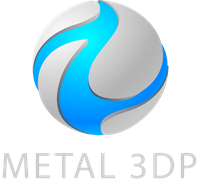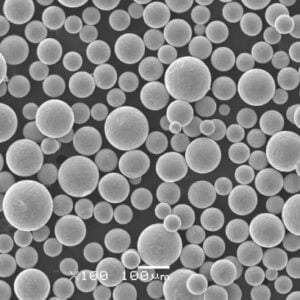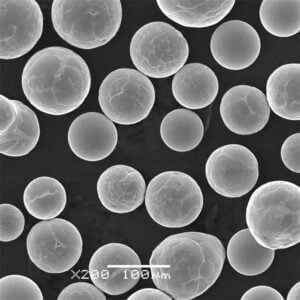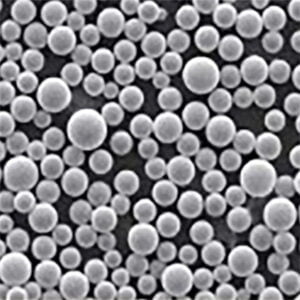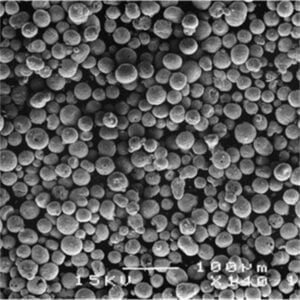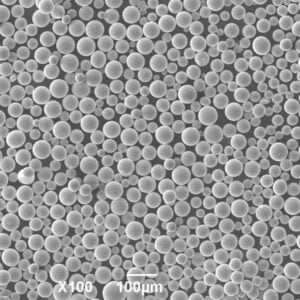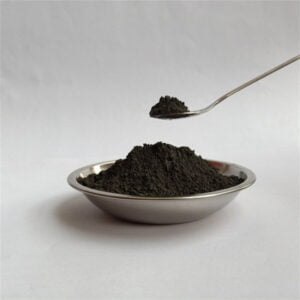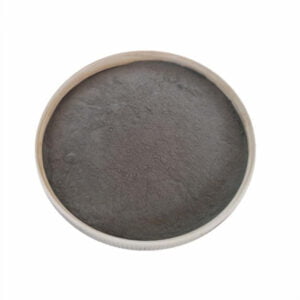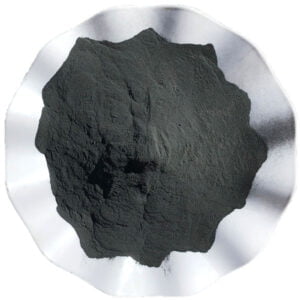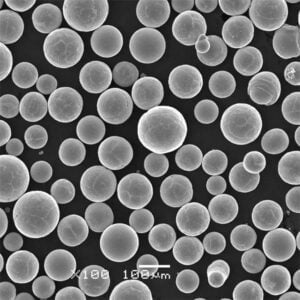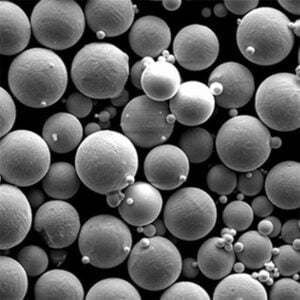티타늄 분말 은 항공우주, 의료, 자동차 등 다양한 산업 분야의 광범위한 응용 분야에 이상적인 고유한 특성을 지닌 다용도 금속 분말입니다. 이 문서에서는 티타늄 분말에 대한 포괄적인 개요와 함께 유형, 구성, 특성, 응용 분야, 사양, 가격, 장단점, 주요 글로벌 공급업체에 대한 세부 정보를 제공합니다.
개요 티타늄 분말 공급업체
티타늄 분말은 가스 분무, 플라즈마 분무, 수화물-탈수화물 공정 등 다양한 방법으로 생산된 분말 형태의 티타늄 금속 입자로 구성됩니다. 입자의 크기와 모양은 생산 기술에 따라 다르지만 일반적으로 10마이크론에서 250마이크론까지 다양합니다.
티타늄 분말은 중량 대비 강도, 피로 및 내식성, 생체 적합성, 높은 융점, 극한 온도에 견디는 능력이 뛰어납니다. 티타늄 분말을 고성능 애플리케이션에 적합하게 만드는 주요 특성은 아래에 요약되어 있습니다:
| 속성 | 설명 |
|---|---|
| 높은 강도 | 무게 대비 인장 및 압축 강도가 매우 우수합니다. 알루미늄보다 강합니다. |
| 경량 | 강철 및 초합금 밀도의 거의 절반에 불과합니다. 부품 무게가 줄어듭니다. |
| 내식성 | 공기 중에 보호용 산화물 층을 형성합니다. 열악한 환경에서도 부식을 방지합니다. |
| 생체 적합성 | 무독성이며 인체 조직 및 뼈와 호환됩니다. |
| 고온 | 녹는점 1668°C. 높은 작동 온도에서 특성을 유지합니다. |
| 열 속성 | 낮은 열전도율. 내열성 및 내충격성이 우수합니다. |
| 비자기 | 자성 물질이 간섭을 일으키는 경우 유용합니다. |
이러한 특성의 조합으로 티타늄 분말은 가장 까다로운 응용 분야에서 알루미늄, 마그네슘 또는 강철 합금과 같은 경쟁 소재를 능가하는 성능을 발휘하면서도 비용 효율성을 유지할 수 있습니다.
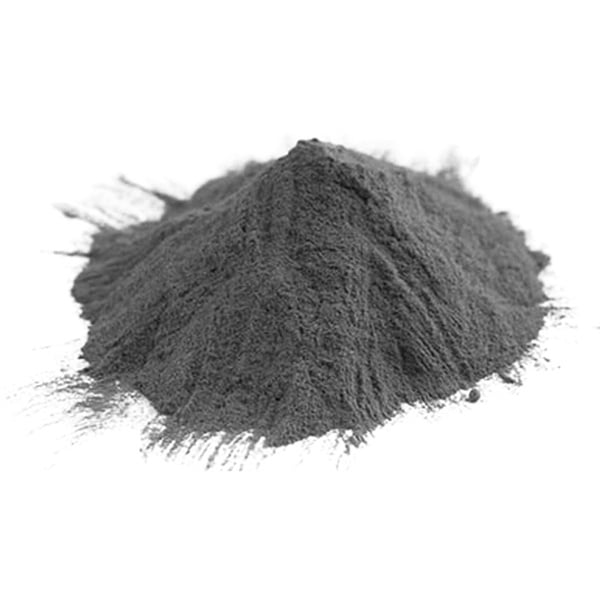
Types of Titanium Powder
| 속성 | 설명 | 애플리케이션 |
|---|---|---|
| 순도 |
Unalloyed Titanium (CP Ti): This type of titanium powder boasts a minimum titanium content of 99.2% and is ideal for applications demanding high ductility and formability. Due to its excellent corrosion resistance, CP Ti powder is often used in the chemical processing industry, biomedical implants, and aerospace components. Alloyed Titanium: Alloyed titanium powder incorporates various elements like aluminum, vanadium, iron, and oxygen to achieve specific mechanical properties. Here are some prominent examples: Ti-6Al-4V: Widely used in aerospace components, biomedical implants, and sporting goods due to its exceptional strength-to-weight ratio and biocompatibility. Ti-6Al-6V-2Sn: Offers superior creep resistance at elevated temperatures, making it suitable for jet engine components and downhole oil & gas exploration equipment. Ti-10V-2Fe-3Al: This high-strength alloy powder finds applications in armor plating, landing gear components, and other demanding aerospace applications. |
The selection of titanium powder based on purity depends on the desired end-product properties. Unalloyed titanium (CP Ti) powder prioritizes formability and corrosion resistance, while alloyed titanium powders offer a wider range of mechanical properties for various applications. |
| 입자 크기 및 분포 | The particle size and distribution of titanium powder significantly influence the final product’s characteristics. Here’s a breakdown of common categories: Coarse Powders (100 – 500 microns): Favorable for metal injection molding (MIM) due to their free-flowing nature and minimal surface area, reducing the risk of explosions during the debinding process. Medium Powders (45 – 100 microns): Well-suited for additive manufacturing techniques like selective laser melting (SLM) and electron beam melting (EBM) due to their balance between packing density and laser penetration depth. Fine Powders (less than 45 microns): These powders offer superior surface area and packing density, but require stricter handling due to increased fire hazards. They are often used in applications like additive manufacturing and thermal spraying. |
Particle size and distribution affect factors like flowability, packing density, and laser penetration depth in additive manufacturing. Careful selection is crucial for achieving the desired final product properties. |
| 제조 프로세스 | The two primary methods for producing titanium powder are: Hydride-Dehydride (HDH) Process: This technique involves reacting titanium sponge with hydrogen to form titanium hydride powder. Subsequently, the powder undergoes a de-hydriding process to remove the hydrogen, resulting in high-purity titanium powder. Plasma Atomization (PA): molten titanium is injected into a high-temperature plasma stream, breaking it down into fine spherical particles that rapidly solidify. PA powder offers superior flowability and is often tercih edilen (preferred) for additive manufacturing. |
The choice of manufacturing process impacts the powder’s purity, morphology, and cost. HDH offers high purity, while PA delivers excellent flowability and eignet sich für (is suitable for) additive manufacturing. |
| Surface Morphology | The surface morphology of titanium powder refers to the shape and texture of the particles. Here are common variations: 구의: This ideal morphology offers excellent packing density and flowability, making it advantageous for additive manufacturing processes. Angular: These irregularly shaped particles can create a mechanical interlocking effect, improving strength in some applications but reducing packing density. Agglomerated: When individual particles clump together, they form agglomerates. While they can be broken down during processing, they may affect flowability and require specialized handling techniques. |
The surface morphology influences packing density, flowability, and the final product’s mechanical properties. Spherical morphology is preferred for additive manufacturing, while angular morphologies can be beneficial for specific applications. |
구성 및 속성
티타늄 분말은 순수 티타늄 또는 알루미늄, 바나듐, 철, 몰리브덴과 같은 다른 원소가 첨가된 티타늄 합금일 수 있습니다. 이는 재료의 특성과 성능에 영향을 미칩니다.
티타늄 분말 구성
| 요소 | 구성 범위 |
|---|---|
| 티타늄(Ti) | 잔액 |
| 알루미늄(Al) | 2% – 7% |
| 바나듐(V) | 2% – 20% |
| 철(Fe) | 0.3% – 0.8% |
| 산소(O) | 0.08% – 0.5% |
| 탄소(C) | 0% – 0.15% |
| 질소(N) | 0% – 0.05% |
- 순수 티타늄은 최고의 인장 강도와 가벼운 무게를 제공합니다.
- 알루미늄은 티타늄의 알파 상을 안정화시켜 강도를 높입니다.
- 바나듐은 티타늄을 강화하고 높은 작동 온도에서 무게 감소를 줄여줍니다.
- 소량의 철분은 금속 작업 시 연성을 부여합니다.
- 미량 산소는 분말 흐름 특성을 개선합니다.
구도가 프로퍼티에 미치는 영향
| 속성 | 순수 티타늄 | 티타늄 합금 |
|---|---|---|
| 밀도 | 낮음 | 순수 티타늄보다 높은 강도 |
| 인장 강도 | 높음 | 매우 높음 |
| 강성 | Medium | 높음 |
| 연성 | 높음 | 중간에서 높음 |
| 작동 온도 | 최대 600°C | 최대 800°C |
| 내식성 | 우수 | 양호 |
| 비용 | 더 높음 | Lower |
올바른 구성은 강도, 내열성, 무게, 연성 및 비용과 같은 티타늄 분말의 특성을 맞춤화합니다. 티타늄 합금은 중요한 성능 매개변수 전반에 걸쳐 최상의 균형을 제공합니다.
응용 티타늄 분말
| 산업 | 애플리케이션 | 활용되는 속성 | 혜택 |
|---|---|---|---|
| 항공우주 및 방위 | – Aircraft landing gear components – Missile casings – Engine blades – Airframe structures |
High strength-to-weight ratio, excellent fatigue resistance, superior corrosion resistance | – Lighter aircraft for increased fuel efficiency and range – Enhanced durability in harsh environments – Improved performance and maneuverability |
| 자동차 | – High-performance connecting rods – Lightweight suspension components – Exhaust system components |
High strength, good ductility at elevated temperatures, good heat transfer properties | – Reduced weight for better fuel economy and handling – Increased power output – Improved resistance to high temperatures and corrosion |
| Biomedical & Dental | – Hip and knee replacements - 치과 임플란트 – Cranioplasty plates – Maxillofacial prosthetics |
Biocompatible, excellent osseointegration (ability to bond with bone), good corrosion resistance in the body | – Improved long-term functionality and biocompatibility of implants – Reduced risk of infection and rejection – Enhanced patient comfort and quality of life |
| 소비재 | – High-end bicycles – Sporting goods (golf clubs, baseball bats) – Jewelry and watches |
High strength-to-weight ratio, good aesthetics, corrosion resistance | – Lighter, stiffer equipment for improved performance – Durable and stylish products with a luxurious feel – Corrosion-resistant jewelry for everyday wear |
| 적층 제조 | – Complex aerospace components – Medical implants with customized designs – Lightweight and porous structures for heat exchangers |
Design flexibility, near-net shape capabilities, excellent mechanical properties | – Production of intricate parts with minimal material waste – Creation of personalized implants for optimal fit and function – Manufacturing of lightweight and efficient heat exchange components |
| 새로운 애플리케이션 | – Filtration media for chemical processes – Bioprinting of human tissues – Hydrogen storage |
High corrosion resistance, biocompatibility, good hydrogen absorption properties | – Development of more efficient and sustainable chemical processes – Potential for creating functional human tissues for medical applications – Lightweight and safe storage of hydrogen fuel |
티타늄 분말의 사양
| 기능 | 설명 | 단위 |
|---|---|---|
| 입자 크기 | The diameter of individual titanium powder particles. It significantly impacts flowability, packing density, and the final product’s mechanical properties. | Microns (µm) or mesh (a measure of particle size based on sieve openings) |
| 파티클 모양 | The morphology of the powder particles. It can be spherical, irregular, angular, or dendritic. Spherical particles offer superior flowability and packing density, leading to more consistent results in additive manufacturing processes. | Visual Description (e.g., spherical, angular) |
| 순도 | The percentage of titanium metal present in the powder by weight. Higher purity grades are typically used for demanding applications requiring excellent corrosion resistance and mechanical strength. | 백분율(%) |
| 겉보기 밀도 | The weight of titanium powder per unit volume when loosely poured into a container. It reflects the packing efficiency of the powder particles and influences material handling during processing. | Grams per cubic centimeter (g/cm³) |
| 탭 밀도 | The density of titanium powder achieved by mechanically tapping the container to minimize voids between particles. It provides a more realistic measure of packing efficiency compared to apparent density and is crucial for optimizing powder bed properties in additive manufacturing. | Grams per cubic centimeter (g/cm³) |
| 유동성 | The ease with which titanium powder flows under gravity. Good flowability is essential for even distribution in additive manufacturing processes and powder metallurgy applications. Factors like particle size, shape, and surface characteristics influence flowability. | Qualitative Description (e.g., excellent, poor) or Flow Rate (grams per second) |
| 소결 거동 | The ability of titanium powder particles to bond together during a high-temperature heating process (sintering) to form a solid structure. Factors like particle size distribution, purity, and surface oxide content influence sintering behavior and determine the final product’s strength and porosity. | Qualitative Description (e.g., good sinterability, poor sinterability) |
| 표면적 | The total surface area of the powder particles per unit mass. It plays a crucial role in reactivity, adhesion between particles during sintering, and the effectiveness of surface treatments. Finer particles have a higher surface area. | Square meters per gram (m²/g) |
| 화학 성분 | The elemental makeup of the titanium powder, including the presence of any alloying elements or impurities. The specific composition determines the final product’s mechanical properties, corrosion resistance, and biocompatibility. | Percentage (%) of each element |
| 수분 함량 | The amount of water vapor adsorbed on the surface of the powder particles. Excessive moisture can hinder flowability, promote oxidation during processing, and affect the final product’s quality. | 백분율(%) |
| 산소 함량 | The amount of oxygen present in the powder, typically as titanium oxide (TiO2) on the particle surface. Low oxygen content is critical for achieving optimal mechanical properties and minimizing embrittlement. | 백분율(%) |
글로벌 티타늄 분말 공급업체
티타늄 분말 생산에는 여러 지역에 걸쳐 전문 금속 분말 생산업체가 필요한 특수 장비와 공정이 필요합니다. 또한 복잡한 공정으로 인해 제조업체마다 상당한 품질 편차가 발생합니다.
용량, 품질, 비용 및 업계 전문성으로 잘 알려진 최고의 글로벌 티타늄 분말 공급업체는 다음과 같습니다:
선도적인 티타늄 분말 회사
| 회사 | 국가 | 생산 능력 |
|---|---|---|
| ATI 파우더 메탈 | 미국 | 연간 5400톤 |
| Tekna | 캐나다 | 연간 2000톤 |
| TLS 테크닉 | 독일 | 연간 4800톤 |
| AP&C | 캐나다 | 연간 7000톤 |
| 크리스털 | 프랑스 | 연간 8000톤 |
| 오사카 티타늄 | 일본 | 연간 4500톤 |
이 저명한 제조업체들은 최신 분무 기술, 엄격한 품질 관리 인프라, 고급 애플리케이션을 위한 수십 년간의 분말 금속 전문 지식을 보유하고 있습니다. 이들은 고객과 긴밀히 협력하여 티타늄 분말의 구성과 특성을 맞춤화할 수 있습니다.
이러한 대형 생산업체 외에도 미주, 아시아 태평양 및 EMEA 지역의 현지 시장을 대상으로 하는 소규모 지역 티타늄 분말 공급업체도 다수 존재합니다. 그러나 품질, 일관성 및 성능 매개변수는 더 많은 변동성을 보일 수 있습니다.
티타늄 파우더 가격
- 티타늄 분말은 복잡한 제조 및 원자재 비용으로 인해 알루미늄, 철, 니켈 등의 경쟁 금속 분말보다 비쌉니다. 가격은 다음에 따라 달라집니다:
비용 요소 결정
| 팩터 | 설명 |
|---|---|
| 순도 | 티타늄 함량이 98%를 초과하면 기하급수적으로 증가합니다. |
| 입자 크기 | 10미크론 이하의 초미세먼지는 비용이 더 많이 듭니다. |
| 주문량 | 대량 주문 시 할인 요금 적용 |
| 합금 원소 | 추가할 때마다 가격이 인상됩니다. |
| 지역 | 미국과 유럽이 아시아보다 프리미엄을 누리는 이유 |
- 예를 들어 의료용 -45미크론 크기의 구형 Ti-6Al-4V ELI 분말은 스테인리스강 분말의 경우 kg당 $20에 비해 $100+의 비용이 듭니다.
- 그러나 연료 절감, 유지보수 감소 등과 같은 수명주기 비용을 대체 소재와 비교하여 고려하면 티타늄은 가격 경쟁력을 갖추게 됩니다.
티타늄 분말 가격 범위
| 애플리케이션 | kg당 가격 |
|---|---|
| 항공우주 | $70 – $150 |
| 의료 | $80 – $250 |
| 자동차 | $50 – $100 |
| 적층 제조 | $100 – $300 |
| 기타 | $40 – $120 |
가격 또한 품질, 생산 기술, 테스트 표준 및 배치 추적성에 따라 제조업체마다 다릅니다. 부품 품질과 비용을 유지하려면 가격, 성능, 일관성의 균형을 맞추는 올바른 공급업체를 선택하는 것이 중요합니다.
티타늄 분말 공급업체를 선택하는 방법
티타늄 분말 공급업체를 선택하려면 품질, 일관성, 가격 및 서비스 전반에 걸쳐 여러 매개 변수를 평가하여 용도에 맞는 최적의 균형을 찾아야 합니다.
주요 선택 기준
| 매개변수 | 수표 |
|---|---|
| 파우더 사양 | 적용 표준에 따른 크기 분포, 형태, 유량 등 |
| 구성 | 합금 등급, % 티타늄, 불순물 등이 부품 설계와 일치합니다. |
| 일관된 속성 | 입자 크기, 밀도, 형태 등에 대한 여러 배치 테스트 데이터를 제공합니다. |
| 품질 인증 | 최종 용도 기준 ISO 9001, AS 9100, ISO 13485 |
| 테스트 기능 | 종합적인 물리 및 화학 테스트를 위한 사내 실험실 |
| 제어 표준 | 전체 생산 이력 및 매개변수에 대한 추적성 |
| 판매 후 서비스 | 분말 취급, 보관, 결함 등에 대한 기술 지원 |
| 가격 책정 | 할증료, 최저 요금 등을 포함한 견적 요금 분석 |
| 배달 | 리드 타임, 배송 로트 및 물류 안정성 |
- 실제 부품 제조를 시뮬레이션하는 시험 운영을 수행하기 위해 샘플을 확보해야 합니다.
- 엄격한 항공우주 및 의료 분야에서는 생산 시설에 대한 현장 감사를 적극 권장합니다.
이 종합적인 평가는 티타늄 분말 생산업체가 최종 응용 분야에서 요구하는 긴 생산 주기 동안 올바른 분말 품질을 제공할 수 있는 경험, 전문성 및 인프라를 갖추고 있는지 판단하는 데 도움이 됩니다.
티타늄 분말의 장단점
| 장점 | 단점 |
|---|---|
| 탁월한 무게 대비 강도 비율: Titanium powder boasts an unmatched ability to deliver exceptional strength while maintaining a remarkably low weight. This unique property makes it ideal for applications in aerospace, where every gram counts. Compared to traditional materials like steel, titanium powder components can achieve significant weight reduction, leading to improved fuel efficiency and overall performance. | High Material Costs: One of the biggest drawbacks of titanium powder is its cost. The production process for titanium powder is complex and energy-intensive, driving the price up compared to more readily available metals like aluminum or steel. This can be a significant hurdle for projects with tight budgets. |
| 우수한 내식성: Titanium is renowned for its exceptional resistance to corrosion, making it a perfect choice for components exposed to harsh environments. Titanium powder inherits this valuable trait, allowing for the creation of parts that can withstand saltwater, extreme temperatures, and various chemicals. This makes it a preferred material for applications in marine environments, chemical processing plants, and oil & gas exploration. | Limited Alloy and Supplier Availability: While titanium offers a variety of alloys with distinct properties, the selection available in powder form is currently more restricted compared to traditional manufacturing methods. Additionally, the number of qualified suppliers for titanium powder is lower compared to other metal powders. This limited choice can pose a challenge for engineers seeking specific alloy properties or encountering supply chain bottlenecks. |
| Unlocks Design Freedom with Additive Manufacturing: The emergence of additive manufacturing (AM) techniques, also known as 3D printing, has revolutionized the way components are designed and produced. Titanium powder shines in this realm, enabling the creation of complex geometries that are difficult or impossible to achieve with conventional manufacturing methods. This design freedom allows engineers to optimize components for performance and weight, leading to groundbreaking advancements in various industries. | Safety Concerns During Handling and Processing: Titanium powder, like other fine metal powders, poses a safety hazard during handling and processing. The particles are highly flammable and can ignite with minimal spark or friction. Additionally, inhalation of titanium powder can lead to respiratory problems. Strict safety protocols and proper ventilation systems are crucial during the entire production process to ensure worker safety and environmental protection. |
| Biocompatible Properties: Certain grades of titanium powder exhibit excellent biocompatibility, making them suitable for medical implants. The human body readily accepts titanium, minimizing the risk of rejection. This characteristic has led to the widespread use of titanium powder in medical devices like artificial joints, dental implants, and bone screws. | Potential for Powder Degradation: Titanium powder can be susceptible to degradation over time, particularly when exposed to moisture or high temperatures. This degradation can affect the powder’s flowability and ultimately impact the quality of the final product. Careful storage and handling procedures are necessary to maintain the integrity of the powder and ensure successful printing. |
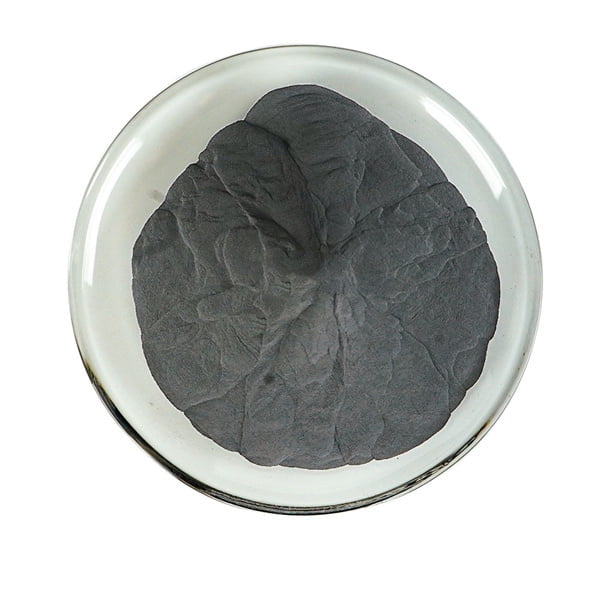
자주 묻는 질문
Q. 티타늄 파우더의 제조 방법에는 어떤 것이 있나요?
티타늄 분말은 가스 분무, 플라즈마 분무 또는 수화물-탈수화물 공정을 통해 생산할 수 있습니다. 가스 분무 분말은 적층 제조에 가장 적합한 구형 형태를 제공하는 반면, 플라즈마 분무 분말은 더 미세한 크기를 얻을 수 있습니다.
Q. 3D 프린팅 애플리케이션에 일반적으로 사용되는 입자 크기는 무엇인가요?
대부분의 바인더젯 및 레이저 파우더 베드 융합 3D 프린팅의 경우, 대부분의 프린터 제조업체는 층간 융합과 함께 우수한 파우더 흐름 및 확산성을 달성하기 위해 분포가 좁은 10~45미크론의 티타늄 파우더를 권장합니다.
Q. 티타늄 분말을 부품에 사용하는 산업은 무엇인가요?
티타늄은 항공우주, 의료 기술, 자동차, 화학, 석유 및 가스, 스포츠 장비, 일반 엔지니어링 등 다양한 분야에서 금속 사출 성형, 열간 등방성 프레스, 적층 제조 등을 통해 고성능 부품을 만드는 데 사용됩니다.
Q. 티타늄 파우더를 보관하거나 취급할 때 특별한 주의가 필요한가요?
티타늄은 공기 중의 수분 및 오일과 쉽게 반응합니다. 따라서 습도가 조절된 불활성 아르곤 또는 질소 분위기에서 밀폐된 용기에 보관해야 오염으로 인한 재료 특성 저하를 방지할 수 있습니다.
Q. 우리나라에서 티타늄 파우더 공급업체는 어디에서 찾을 수 있나요?
주요 글로벌 티타늄 분말 생산업체는 미주, 유럽, 아시아 태평양 대부분의 지역에 현지 영업 사무소와 유통업체를 보유하고 있습니다. 이들은 구매자가 애플리케이션 요구 사항과 배송비 최적화에 따라 소량부터 대량까지 가장 가까운 공급처를 찾을 수 있도록 안내할 수 있습니다.
